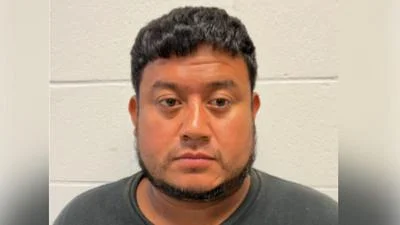Former food service director at School District 152 in Harvey has achieved national notoriety for allegedly stealing $1.5 million worth of chicken wings and other tasty items.
Her choice of contraband sets her apart from other alleged theft of government funds, but bitter experience shows the lockdown made looters out of regular people.
Justice Department Inspector General Michael Horowitz told a House oversight committee last week that the amount of virus relief fraud is clearly in the tens of billions.
“It wouldn’t surprise me if it exceeds more than a hundred billion but we have so much work to do,” Horowitz said.
“We’re going to be counting and figuring out this out for years to come.”
Committee Chair James Comer of Kentucky called it the greatest theft of American taxpayer dollars in history.
Oversight members heard that more than 1,000 persons have pleaded guilty or been convicted.
They heard more than 600 people and entities face federal charges, that the small business administration has more than 500 investigations going, that the labor department opens at least 100 investigations of unemployment compensation claims each week and that social security numbers on about 70,000 applications for loans and grants didn’t match numbers in social security records.
They also heard that the Small Business Administration paid $3.6 billion to about 57,000 persons the government had flagged as "Do Not Pay," because the agency didn’t cross check the names.
Such behavior fits the standard profile of looters
Twelve years ago, British Broadcasting Company interviewed experts in the midst of a looting wave in Britain.
Criminologist John Pitts said looting makes powerless people suddenly feel powerful.
“It’s intoxicating," Pitts said, "The world has been turned upside down.”
Psychologist Lance Workman said watching other people get away with it can act as motivation.
He said humans are the most imitative species and, “We tend to imitate what is successful.”
Psychologist Paul Bagguley said men confront police in riots and women and children loot.
“It’s very likely that a lot of people stealing the stuff wouldn’t have done it before," Bagguley said. “There is a sense in these situations that the normal rules don’t apply.”
Normal rules didn’t apply to Vera Liddell, whose thefts allegedly began in July 2020.
She retained authority to purchase food while students stayed home because District 152 prepared meals for delivery to homes.
She allegedly drove a district van to a food service vendor, loaded it, paid for the food with district funds, and drove away to parts unknown.
In February 2022, the district exhausted its food budget for the year and an audit ensued.
Chicken wings stood out because Illinois schools can’t serve food with bones.
District's dismal academic performance
District 152 provides education from preschool to eighth grade.
For 2018-19, the district reported 26% proficiency in science, 19% percent in language, and 12% in mathematics.
It reported 31% of students missed 10% or more of school days.
It spent $14,499 per pupil, 5% above the state average of $13,764.
It reported 66% black enrollment and 31% Hispanic.
It reported 99% low income and 31% homeless.
The state rated its elementary schools commendable and its middle school underperforming.






 Alerts Sign-up
Alerts Sign-up